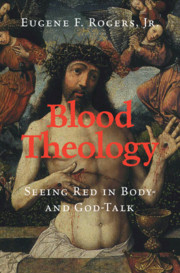Refine search
Actions for selected content:
24 results
2 - Pregnancy, Record-Keeping and Respectability
-
- Book:
- Making Babies in Early Modern England
- Published online:
- 12 December 2025
- Print publication:
- 29 January 2026, pp 50-81
-
- Chapter
-
- You have access
- Open access
- HTML
- Export citation
5 - ‘Safe’ Delivery and Recovering from Birth
-
- Book:
- Making Babies in Early Modern England
- Published online:
- 12 December 2025
- Print publication:
- 29 January 2026, pp 136-165
-
- Chapter
-
- You have access
- Open access
- HTML
- Export citation
Habit, medicine, and society in 18th-century Britain
-
- Journal:
- Medical History , First View
- Published online by Cambridge University Press:
- 17 November 2025, pp. 1-19
-
- Article
-
- You have access
- Open access
- HTML
- Export citation
Intentional Menstrual Suppression in Imperial Rome
-
- Journal:
- The Journal of Roman Studies / Volume 114 / November 2024
- Published online by Cambridge University Press:
- 13 January 2025, pp. 27-59
- Print publication:
- November 2024
-
- Article
- Export citation
Managing menstruation during natural disasters: menstruation hygiene management during “super floods” in Sindh province of Pakistan
-
- Journal:
- Journal of Biosocial Science / Volume 56 / Issue 3 / May 2024
- Published online by Cambridge University Press:
- 13 November 2023, pp. 480-492
-
- Article
-
- You have access
- Open access
- HTML
- Export citation
Women, blood, and dangerous things: socio-cultural variation in the conceptualization of menstruation
-
- Journal:
- Language and Cognition / Volume 16 / Issue 2 / June 2024
- Published online by Cambridge University Press:
- 17 October 2023, pp. 505-535
-
- Article
-
- You have access
- Open access
- HTML
- Export citation
Chapter 3 - Women’s Medical Knowledge in Antiquity
-
-
- Book:
- Ancient Women Philosophers
- Published online:
- 17 August 2023
- Print publication:
- 31 August 2023, pp 57-76
-
- Chapter
- Export citation
“She gets out of control when she’s on her period”. Cyclic menstrual psychosis. A case report
-
- Journal:
- European Psychiatry / Volume 65 / Issue S1 / June 2022
- Published online by Cambridge University Press:
- 01 September 2022, p. S427
-
- Article
-
- You have access
- Open access
- Export citation
2 - Transitional Bleeding in Early Modern England
-
-
- Book:
- Blood
- Published online:
- 13 June 2022
- Print publication:
- 07 July 2022, pp 18-37
-
- Chapter
- Export citation
6 - Heroes and Villains of Blood
-
-
- Book:
- Blood
- Published online:
- 13 June 2022
- Print publication:
- 07 July 2022, pp 118-139
-
- Chapter
- Export citation
11 - The Gender Dimension
- from Part IV - People
-
- Book:
- The Human Rights to Water and Sanitation
- Published online:
- 28 April 2022
- Print publication:
- 12 May 2022, pp 307-327
-
- Chapter
- Export citation
How is the COVID-19 pandemic affecting women's menstrual cycles and quality of life? A view from South Asia
-
- Journal:
- BJPsych Advances / Volume 28 / Issue 4 / July 2022
- Published online by Cambridge University Press:
- 29 November 2021, pp. 274-277
- Print publication:
- July 2022
-
- Article
-
- You have access
- HTML
- Export citation
4 - Blood after the Last Supper
- from Part II - Blood Seeps in Where It Hardly Seems to Belong
-
- Book:
- Blood Theology
- Published online:
- 22 March 2021
- Print publication:
- 25 March 2021, pp 83-114
-
- Chapter
- Export citation

Blood Theology
- Seeing Red in Body- and God-Talk
-
- Published online:
- 22 March 2021
- Print publication:
- 25 March 2021
7 - Medical Matters
-
- Book:
- Sisters in Arms
- Published online:
- 31 August 2020
- Print publication:
- 03 September 2020, pp 124-140
-
- Chapter
- Export citation
The Female Body in Catholic Theology: Menstruation, Reproduction, and Autonomy
-
- Article
-
- You have access
- HTML
- Export citation
100 - How the Body Worked
- from Part XI - Medicine
-
-
- Book:
- The Cambridge Guide to the Worlds of Shakespeare
- Published online:
- 17 August 2019
- Print publication:
- 21 January 2016, pp 777-783
-
- Chapter
- Export citation
Part XI - Medicine
-
-
- Book:
- The Cambridge Guide to the Worlds of Shakespeare
- Published online:
- 17 August 2019
- Print publication:
- 21 January 2016, pp 761-828
-
- Chapter
- Export citation
102 - Explaining Racial and Sexual Differences
- from Part XI - Medicine
-
-
- Book:
- The Cambridge Guide to the Worlds of Shakespeare
- Published online:
- 17 August 2019
- Print publication:
- 21 January 2016, pp 788-795
-
- Chapter
- Export citation
Psychosexual Study of Communist Era Hungarian Twins
-
- Journal:
- Twin Research and Human Genetics / Volume 14 / Issue 2 / 01 April 2011
- Published online by Cambridge University Press:
- 21 February 2012, pp. 144-149
-
- Article
-
- You have access
- Export citation
